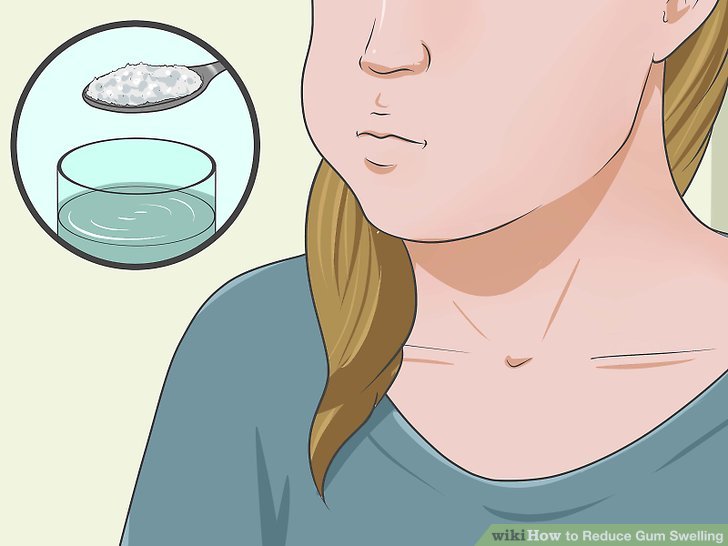12+ Braces Tips To Reduce Gum Swelling

Gum swelling can be a frustrating and painful issue, especially for those who wear braces. The brackets and wires can sometimes irritate the gums, leading to inflammation and discomfort. However, there are several steps you can take to reduce gum swelling and make your orthodontic treatment more comfortable. Here are 12+ tips to help you alleviate gum swelling with braces:
1. Maintain Proper Oral Hygiene
Keeping your teeth and braces clean is crucial. Brush your teeth at least twice a day with a fluoride toothpaste and gently clean around the brackets and wires. Use a soft-bristled toothbrush and consider using an electric toothbrush for more efficient cleaning. Don’t forget to replace your toothbrush every three months or sooner if the bristles become frayed.
2. Use an Interdental Brush
An interdental brush is small and can be used to clean between the braces and under the wires, areas that a regular toothbrush might miss. This helps in removing food particles that can get stuck and irritate the gums.
3. Floss Regularly
Flossing is a bit more challenging with braces, but it’s essential for removing food particles and plaque from between the teeth and under the gumline. You can use a floss threader or an interdental floss to make the process easier. Floss at least once a day, preferably before brushing your teeth at night.
4. Use a Waterpik
A Waterpik can be very effective in dislodging food particles and plaque that might be irritating your gums. It’s a device that shoots a stream of water to clean between your teeth and below the gumline. Be gentle, especially if your gums are sensitive.
5. Apply Saltwater Rinses
Rinsing your mouth with warm saltwater several times a day can help reduce gum swelling. Mix 1 teaspoon of salt with 8 ounces of warm water and swish it around your mouth for about 30 seconds before spitting it out. This can help reduce inflammation and kill bacteria.
6. Try Hydrogen Peroxide Mouthwash
Diluted hydrogen peroxide can be used as a mouthwash to help kill bacteria and reduce gum swelling. However, always dilute it with water (50⁄50) and consult your orthodontist or dentist before using it, especially if you have sensitive teeth or gums.
7. Keep Your Orthodontic Appointments
Regular check-ups with your orthodontist are crucial. They can adjust your braces, check for any issues, and provide advice tailored to your needs. If you notice any significant gum swelling, don’t hesitate to contact your orthodontist for advice.
8. Eat a Balanced Diet
Eating a diet rich in fruits, vegetables, and whole grains can help keep your gums healthy. Avoid sugary and acidic foods and drinks, which can contribute to tooth decay and gum disease.
9. Avoid Hard or Sticky Foods
While you have braces, it’s best to avoid foods that are hard, crunchy, sticky, or chewy, as they can damage your braces and irritate your gums. Opt for soft foods like yogurt, soup, scrambled eggs, and mashed potatoes, especially during the initial period after getting your braces.
10. Stay Hydrated
Drinking plenty of water helps keep your mouth moist and can help flush away bacteria and food particles. Aim to drink at least eight glasses of water a day.
11. Manage Stress
High levels of stress can affect your oral health, including gum inflammation. Engage in stress-reducing activities like meditation, deep breathing exercises, or yoga.
12. Use Orthodontic Wax
If a bracket or wire is irritating your gum, you can use orthodontic wax to cover it. This can provide temporary relief until you can see your orthodontist.
Additional Tips
- Keep Your Braces Adjusted: Regular adjustments by your orthodontist can help ensure your braces are fitting properly and not rubbing against your gums.
- Monitor Your Gum Health: Be aware of any changes in your gum health, such as increased redness, swelling, or bleeding. If you notice any unusual symptoms, contact your orthodontist.
- Consider a Desensitizing Toothpaste: If you experience tooth sensitivity, using a desensitizing toothpaste can help alleviate the discomfort.
Conclusion
Taking care of your gums while wearing braces requires attention to your oral hygiene habits, diet, and overall health. By following these tips, you can reduce gum swelling and make your orthodontic treatment more comfortable. Remember, it’s normal to experience some level of discomfort or gum irritation with braces, but with proper care, these issues can be managed effectively.
FAQ Section
How often should I clean my braces?
+You should clean your braces after every meal and before bedtime. Regular cleaning will prevent plaque buildup and reduce the risk of gum irritation.
Can I use any mouthwash with braces?
+Not all mouthwashes are suitable for use with braces. Always choose a mouthwash that is recommended by your orthodontist and follow the instructions carefully. Some mouthwashes can damage the braces or interact with other oral care products.
How long does gum swelling last with braces?
+Gum swelling is usually most pronounced in the initial weeks after getting braces. As your mouth adjusts, the swelling should reduce. However, if you experience persistent or severe gum swelling, consult your orthodontist for advice.
By incorporating these tips into your daily routine, you can effectively manage gum swelling and ensure a smoother, more comfortable orthodontic treatment experience.


